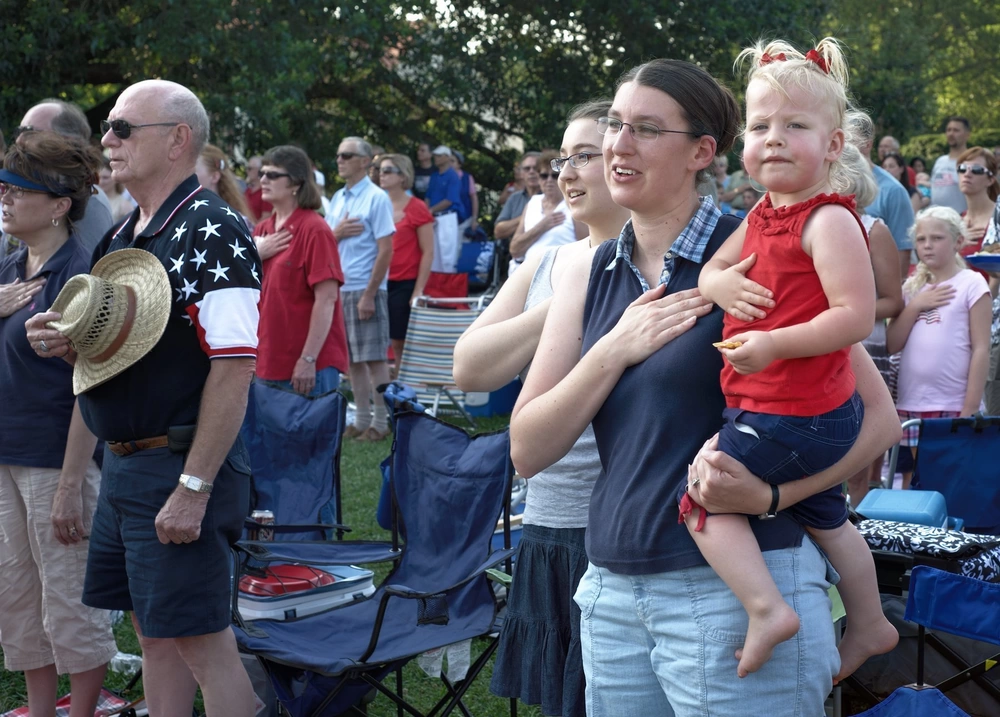by Robin Beres
In less than a week, Virginians, like Americans everywhere, will celebrate Independence Day. This year, despite high inflation, high gas prices, a sharply divided electorate, and rising crime rates, there seems to be a growing consensus that we celebrate this occasion with all the gusto we can muster.
Despite the holiday falling on a Tuesday, from Winchester to Norfolk to Abingdon, plans are afoot for a glorious Fourth, complete with fireworks, parades, and hot dogs. Mount Vernon is celebrating the naturalization of hundreds of new American citizens. Colonial Williamsburg is offering free admission to its historic area and art museums on July 4. Virginia Beach is hosting free concerts on 17th Street, 24th Street, and 31st Street. Just about every small town and village is having a parade. With 27 military installations around the state, expect to see lots of marching troops and military static displays.

Thankfully, Virginia has so far managed to avoid the oppressive heat dome that sits over much of the United States. But even if the temps do soar above the 90-degree mark, it probably wouldn’t deter many Virginians from celebrating our Independence Day. It’s what we do — and studies show we do it with more pride than any other state in the union.
Last week, the personal finance website, WalletHub, came out with its annual ranking of the most patriotic states in the country. According to the website, Virginia is the most patriotic state in the country. WalletHub uses 13 key indicators of patriotism to compare the 50 states. Data included factors such as the number of active-duty military members and veterans, the share of adults who voted in the last presidential election, and the share of residents who have active civic lives. Below are the metrics WalletHub used.
Military Engagement – Total Points: 25
Average Military Enlistees per 1,000 Civilian Adults Between 2015 & 2020 (No Prior Service);
Veterans per 1,000 Civilian Adults;
Active-Duty Military Personnel per 100,000 Civilian Adults;
Share of Civilian Adult Population in Military Reserves.Civic Engagement – Total Points: 75
Share of Adults Who Voted in 2020 Presidential Election;
Share of Adults Who Voted in 2020 Primary Elections;
Volunteer Rate;
Volunteer Hours per Resident;
AmeriCorps Volunteers per Capita;
Peace Corps Volunteers per Capita;
Trial- & Grand-Jury Participation per Civilian Adult Population;
Share of Residents Who Participate in Groups or Organizations (Civic Life);
U.S. History/Civics Education Requirement.
WalletHub
has been compiling this data for nine years, since 2015. The Old Dominion took first place every year between 2015 and 2018. Then suddenly, in 2019, the commonwealth plummeted to 15th place. Notable drops in civic engagement metrics were the primary factor in that stunning decline.
Looking back, it’s understandable why Virginians weren’t feeling very proud in 2019. It wasn’t a great year for the Old Dominion. In late January 2019, then-Gov. Ralph Northam’s blackface scandal erupted, causing a national uproar.
Northam initially apologized for the photo in his medical school yearbook but then recanted and claimed he wasn’t in the photo — but he did confess to wearing blackface to a Michael Jackson concert in 1984. That only made matters worse. Prominent Democrats across the country called for his resignation.
And just days later, out of the blue two women launched serious accusations of sexual assault against Virginia Lieutenant Governor Justin Fairfax. The lieutenant governor adamantly denied the accusations. Calls for his resignation also rolled in.
Covering his bases, Attorney General Mark Herring also admitted he too had worn blackface in college. The trifecta of scandals sent shock waves throughout the Democratic Party.
For Virginians, who have always seemed to believe that because of the commonwealth’s momentous history, our leaders and our institutions are imbued with greater respectability than most, it was a national embarrassment to see the scandals being discussed and dissected on national cable shows and in publications like The New York Times and Politico.
It didn’t help that just four years earlier, the state had made national headlines because of accusations against then-Governor Bob McDonnell.
It was a painful time for Virginia.
As it turned out, of course, in the end none of the three resigned. Northam was able to remain in office by admitting to his racial insensitivity and holding multiple private listening sessions with Black leaders across the state. But he remained out of public sight for more than two months.
That was then. We moved on from those scandals, just as we have from others in the past. By 2022, Virginia was in third place and today, we’ve reclaimed the No. 1 spot. Which only seems fitting for the birthplace of the world’s greatest experiment in representative democracy.
Happy July 4.

Leave a Reply
You must be logged in to post a comment.